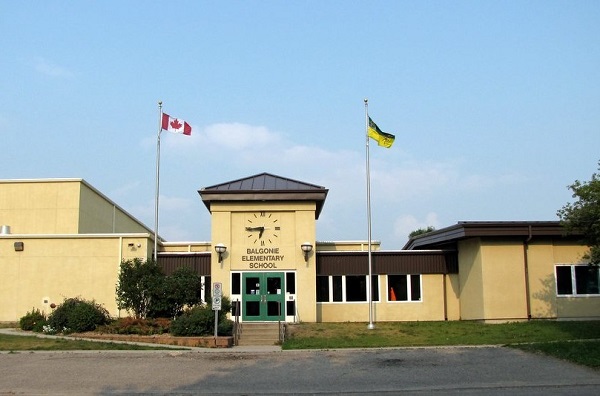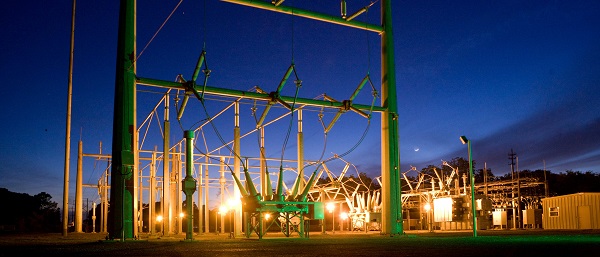National
Irate parents demand answers from Saskatchewan school allowing males to use girls’ locker rooms

From LifeSiteNews
Girls have stopped changing for gym class at Balgonie Elementary in rural Saskatchewan while the school defends its actions, telling one student who felt uncomfortable that ‘she can change in a different room by herself.’
Canadian parents are outraged after learning their children’s school allowed two gender-confused biological males claiming to be female full access to the Grade 7 girls’ changing room.
In September, a female Grade 7 student from Balgonie Elementary School in rural Saskatchewan told her parents she was not comfortable with having to share changing rooms used for gym class with biological males.
Since the start of the school year, two gender-confused students have been allowed access to the girls’ locker room, as per the Western Standard, which broke the story.
As noted in the report, one parent, who remains anonymous, said that after her daughter raised the issue of the biological males using the girls’ locker room, saying she “felt uncomfortable,” she was told “she can change in a different room by herself.”
The parents were not pleased with the response and contacted the school principal, the Prairie Valley School Division (PVSD) superintendent, and the school board as well as Saskatchewan Premier Scott Moe.
The parent noted that after two weeks of “auto-responding with legal policies and procedures,” he finally met with the superintendent as well as a board member.
He said the meeting went “exactly as I thought,” adding that all that was said was that they “have done what they need to do according to the human rights and charter of rights and freedoms.”
Not pleased with the answer, the parent then emailed school officials on September 24, noting, “So, in short, you’re saying if there’s biological males that identify as females in the school, then our biological females have no more rights? Cause that’s what it seems like.”
He then said due to the biological males using the girls’ change room, many students have simply stopped changing for gym class and called the whole ordeal “not acceptable.”
The parent also was offended by an email from school Vice Principal Sarah Slwyka that read, “Students are expected to use the change room in an appropriate manner.”
He said in reply, “Correct me if I’m wrong,” adding, “since when is it appropriate to expose my 12-year-old daughter along with all the other biological females in that class to penis?”
The parent then said that school officials were acting in a cowardly manner to do the right thing because they were “pretending this is ok just to save your jobs.”
He said that gender-confused students should be the ones using a gender-neutral washroom.
The parent did get a reply from PVSD learning superintendent Lorrie Anne Harkness. However, it was a defense of the school’s actions.
Saskatchewan Minister of Education Jeremy Cockrill, who like the rest of his party is up for re-election, has promised that a re-elected Saskatchewan Party would “ensure that all public, separate, francophone, and independent schools in the province have policies in place to ensure that change rooms are safe and private places.”
As reported by LifeSiteNews, LGBT indoctrination targeting kids has been on the rise in Canada and worldwide, which has led to Canadians fighting back in protest.
Earlier this week, LifeSiteNews reported that a leading female gender ideology activist, who also worked as a school counselor, has been charged with grievous sexual offenses involving a minor.
Some provinces, such as Alberta, New Brunswick, and Saskatchewan, have in recent months proposed legislation that would strengthen parental rights.
The Alberta government will soon be introducing legislation aimed at strengthening parental rights as well as limiting minors being able to undergo “gender reassignment” surgery.
National
Democracy Watch Renews Push for Independent Prosecutor in SNC-Lavalin Case

Group says Ontario Crown used “clearly incorrect” legal test to shield Trudeau from private prosecution, calls for independent process free of political ties
Democracy Watch has launched a fresh bid to reopen the door to prosecuting former Prime Minister Justin Trudeau over his alleged role in the 2018 SNC-Lavalin affair, accusing Ontario Crown Counsel of using a legally flawed standard to shut down its private prosecution and continuing what it calls “a smelly cover-up” that began under the Trudeau government.
Read the full press release here
In a new letter sent Wednesday to Ontario Attorney General Doug Downey and Randy Schwartz, the province’s Assistant Deputy Attorney General for Criminal Law, the non-partisan watchdog group is again calling for an independent special prosecutor to review evidence that Trudeau obstructed justice and breached public trust by pressuring then–Attorney General Jody Wilson-Raybould to intervene in the SNC-Lavalin prosecution seven years ago.
This latest appeal comes after Ontario’s Director of the Complex Prosecutions Bureau, John Corelli, used his authority in September to halt Democracy Watch’s private prosecution before it reached a preliminary “pre-enquête” hearing. In that letter, Corelli said there was “no reasonable prospect the Crown could prove that Mr. Trudeau acted with the requisite criminal intent.”
Democracy Watch disputes that reasoning, arguing it misstates the law.
“Crown prosecutors stopping this prosecution for a legally incorrect reason, just like the RCMP did in addition to suppressing key evidence, amounts to a smelly cover-up,” said Duff Conacher, the group’s co-founder and legal expert. “It shows clearly that Canada does not have independent, effective anti-corruption law enforcement and, as a result, corruption in the highest public offices across the country is effectively legal.”
The group’s new letter marks the second time it has asked Ontario’s Attorney General to intervene. In its first request in March, Democracy Watch urged Downey to establish a non-partisan selection committee to appoint a special prosecutor. Downey’s office declined that request in May.
Now, the group is reiterating the demand, saying the independent prosecutor should be chosen by a committee composed of people with no party ties, working alongside opposition leaders, to ensure public confidence in the process.
Conacher’s team argues that Corelli’s reasoning — that the Crown cannot prove Trudeau acted with “criminal intent” — applies the wrong legal test. In its filings, Democracy Watch cites the Supreme Court of Canada’s decision in R. v. Beaudry (2007), which clarified that obstruction of justice requires only that an act be done “willfully” to frustrate the course of justice — not that it be done with corrupt or deceitful intent.
“The Supreme Court has already set the threshold,” Conacher said. “Proof of ‘criminal’ intent isn’t required. It’s enough that someone acted willfully to obstruct the process. That’s what the Crown ignored.”
The group also says that the case against Trudeau is unprecedented and cannot be dismissed out of hand without judicial review. It accuses the RCMP of conducting a “negligently weak and incomplete investigation” that left key questions unanswered and accepted the government’s refusal to release Cabinet records from the time.
Democracy Watch’s original filing included testimony and documents obtained from the RCMP after a two-year access battle. It alleges that the Mounties failed to interview key witnesses, including Wilson-Raybould’s chief of staff Jessica Prince and former Liberal minister Jane Philpott, and withheld portions of their answers in documents finally disclosed. The proposed pre-enquête hearing — which Corelli stopped — would have allowed those witnesses to testify under oath and allowed a judge to decide if the evidence was sufficient to proceed.
The group’s case was supported by Wayne Crookes, founder of Integrity B.C., and represented by Jen Danch of Swadron Associates law firm.
Conacher is now urging Ontario’s Attorney General to “do the right thing” and reverse course.
“Canadians can only hope Ontario’s Attorney General will work with opposition party leaders to establish a fully independent committee that will choose a fully independent special prosecutor to review the evidence,” Conacher said.
He also renewed his call for structural reform of Canada’s anti-corruption enforcement, noting that Quebec’s independent anti-corruption police and prosecution units (UPAC) have operated since 2011, while the RCMP remains under the direct control of Cabinet appointees.
“The RCMP lacks independence from the Prime Minister and Cabinet ministers who handpick its leadership,” Conacher said. “They serve at the pleasure of the government, so they are vulnerable to political interference. To ensure integrity, Canada needs a fully independent anti-corruption police force and independent prosecutors.”
Democracy Watch’s campaign underscores a broader concern that the Trudeau-era SNC-Lavalin controversy, which saw Wilson-Raybould’s resignation, Philpott’s exit, and an Ethics Commissioner finding of improper political pressure, has never been subjected to a full criminal review.
For Conacher, the issue is bigger than one case. It’s about restoring the principle that no one, not even a Prime Minister, stands above the law.
Subscribe to The Opposition with Dan Knight .
For the full experience, upgrade your subscription.
Business
Over two thirds of Canadians say Ottawa should reduce size of federal bureaucracy

From the Fraser Institute
By Matthew Lau
From 2015 to 2024, headcount at Natural Resources Canada increased 39 per cent even though employment in Canada’s natural resources sector actually fell one per cent. Similarly, there was 382 per cent headcount growth at the federal department for Women and Gender Equality—obviously far higher than the actual growth in Canada’s female population.
According to a recent poll, there’s widespread support among Canadians for reducing the size of the federal bureaucracy. The support extends across the political spectrum. Among the political right, 82.8 per cent agree to reduce the federal bureaucracy compared to only 5.8 per cent who disagree (with the balance neither agreeing nor disagreeing); among political moderates 68.4 per cent agree and only 10.0 per cent disagree; and among the political left 44.8 per cent agree and 26.3 per cent disagree.
Taken together, “67 per cent agreed the federal bureaucracy should be significantly reduced. Only 12 per cent disagreed.” These results shouldn’t be surprising. The federal bureaucracy is ripe for cuts. From 2015 to 2024, the federal government added more than 110,000 new bureaucrats, a 43 per cent increase, which was nearly triple the rate of population growth.
This bureaucratic expansion was totally unjustified. From 2015 to 2024, headcount at Natural Resources Canada increased 39 per cent even though employment in Canada’s natural resources sector actually fell one per cent. Similarly, there was 382 per cent headcount growth at the federal department for Women and Gender Equality—obviously far higher than the actual growth in Canada’s female population. And there are many similar examples.
While in 2025 the number of federal public service jobs fell by three per cent, the cost of the federal bureaucracy actually increased as the number of fulltime equivalents, which accounts for whether those jobs were fulltime or part-time, went up. With the tax burden created by the federal bureaucracy rising so significantly in the past decade, it’s no wonder Canadians overwhelmingly support its reduction.
Another interesting poll result: “While 42 per cent of those surveyed supported the government using artificial intelligence tools to resolve bottlenecks in service delivery, 32 per cent opposed it, with 25 per cent on the fence.” The authors of the poll say the “plurality in favour is surprising, given the novelty of the technology.”
Yet if 67 per cent of Canadians agree with significantly shrinking the federal bureaucracy, then solid support for using AI to increasing efficiency should not be too surprising, even if the technology is relatively new. Separate research finds 58 per cent of Canadian workers say they use AI tools provided by their workplace, and although many of them do not necessarily use AI regularly, of those who report using AI the majority say it improves their productivity.
In fact, there’s massive potential for the government to leverage AI to increase efficiency and control labour expenses. According to a recent study by a think-tank at Toronto Metropolitan University (formerly known as Ryerson), while the federal public service and the overall Canadian workforce are similar in terms of the percentage of roles that could be made more productive by AI, federal employees were twice as likely (58 per cent versus 29 per cent) to have jobs “comprised of tasks that are more likely to be substituted or replaced” by AI.
The opportunity to improve public service efficiency and deliver massive savings to taxpayers is clearly there. However, whether the Carney government will take advantage of this opportunity is questionable. Unlike private businesses, which must continuously innovate and improve operational efficiency to compete in a free market, federal bureaucracies face no competition. As a result, there’s little pressure or incentive to reduce costs and increase efficiency, whether through AI or other process or organizational improvements.
In its upcoming budget and beyond, it would be a shame if the federal government does not, through AI or other changes, restrain the cost of its workforce. Taxpayers deserve, and clearly demand, a break from this ever-increasing burden.
-

 Alberta2 days ago
Alberta2 days agoFact, fiction, and the pipeline that’s paying Canada’s rent
-

 2025 Federal Election2 days ago
2025 Federal Election2 days agoProtestor Behind ‘Longest Ballot’ Chaos targeting Poilievre pontificates to Commons Committee
-

 Business2 days ago
Business2 days agoFinance Titans May Have Found Trojan Horse For ‘Climate Mandates’
-

 Energy1 day ago
Energy1 day agoIndigenous Communities Support Pipelines, Why No One Talks About That
-

 International2 days ago
International2 days agoSigned and sealed: Peace in the Middle East
-

 Alberta1 day ago
Alberta1 day agoOil Sands are the Costco of world energy – dependable and you know exactly where to find it
-

 Business1 day ago
Business1 day agoFinance Committee Recommendation To Revoke Charitable Status For Religion Short Sighted And Destructive
-

 Alberta1 day ago
Alberta1 day agoThe Technical Pitfalls and Political Perils of “Decarbonized” Oil








